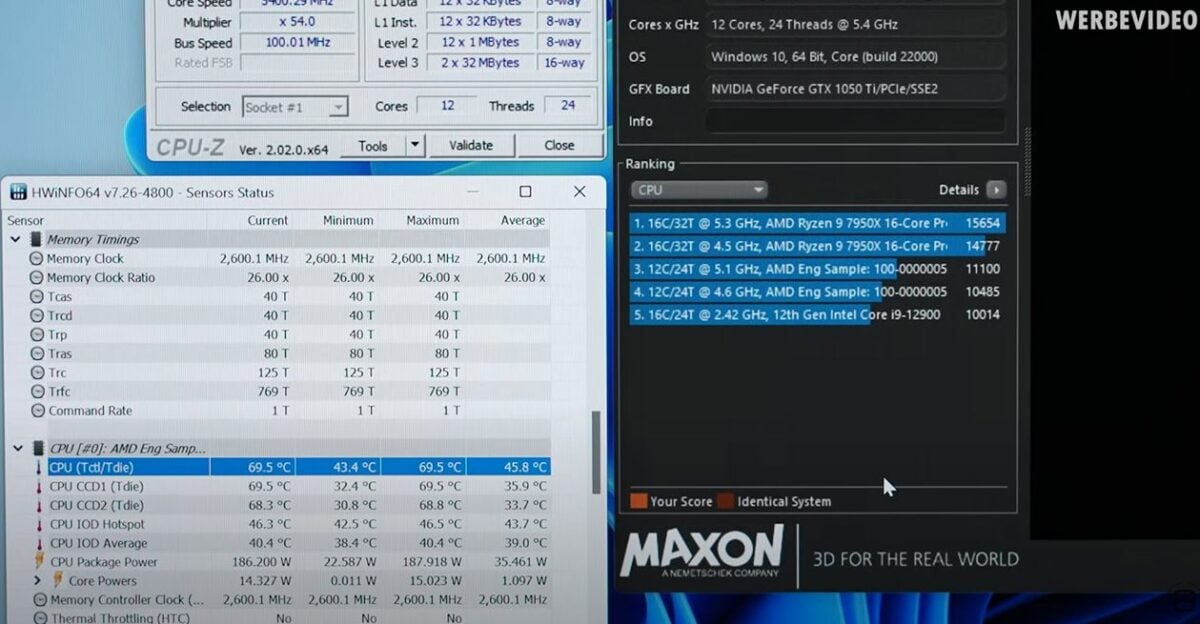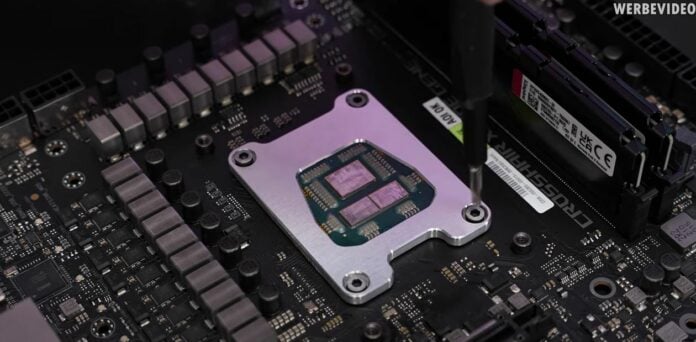Our launch-day coverage of Ryzen 9 7950X and Ryzen 7 7700X unearths an uncomfortable truth that AMD’s Zen 4 CPUs run hot. Placed under a capable Noctua NH-D15 chromax.black heatsink, all-core temperature at stock speeds quickly escalates to 95°C. The tech community’s favourite overclocking daredevil, der8auer, has taken it upon himself to see if removing the new IHS and going direct-die cooling is worth it. The answer is yes, as he managed to reduce peak all-core temperature by over 20°C on an overclocked 12-core Ryzen 9 7900X CPU.
In his video, he runs a retail-sample Ryzen 9 7900X at an all-core 5.4GHz with 1.29V. Even decent watercooling is unable to keep the chip the right side of 90°C, he notes, which is entirely within our expectations.
Prising off the rather thick integrated heatspreader (IHS) and cleaning up the CCDs before placing the same cooling on top of a custom-made holding plate, as seen the video grab above, the ‘moment of truth’ reveals temperature drops to below 69.5°C, roundly indicating the standard IHS, designed to maintain compatibility with the AM4 mounting system, isn’t doing a great job.
It is entirely reasonable and proper to see lower under-load temperatures when going straight to the silicon, yet the marked decrease is more than we expected.

This revelation leads us to believe that, unlike what AMD claims, the latest Ryzen 7000 Series chips don’t need to be running above 90°C when under load. They do so, it appears, due to a particular IHS design, enforced on the AM5 chips due to meeting compatibility with AM4 coolers.
Given der8auer’s results, AMD would have been better served in designing a better-functioning IHS, even if that meant breaking compatibility with extant AM4 cooling. If you have gone to the lengths to build a new socket, use new memory and offer PCIe 5 everywhere, why not go the whole hog and build out the physical CPU better from a cooling point of view?
It’s very unlikely AMD will deviate from the Ryzen 7000 Series IHS for a while – the ‘octopus’ is here to stay – yet don’t be overly surprised if 2024’s Zen 5 takes a different tack.

